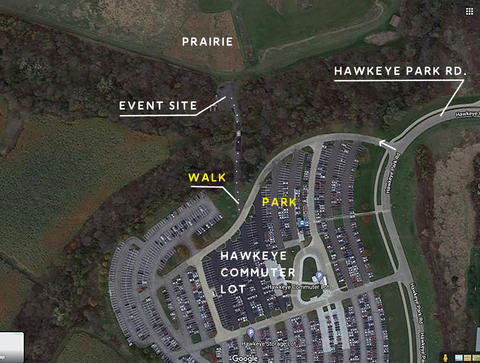
What types of plants, animals, and fungal life might you find at the Ashton Prairie Living Laboratory? Let's find out!
Join researchers in collecting, observing, and recording biodiversity at the Ashton Prairie Living Laboratory in our 4th Annual BioBlitz. Your findings will inform a major research project and will contribute to the fourth data point in a multi-year documentation of how diversity changes at this site over time. Collections will be housed with the UI Museum of Natural History, accessible for comparative data analysis for generations to come.
Registration is required + free. Sign up link is here: https://uiowa.qualtrics.com/jfe/form/SV_e2lUEkdFuVY2NkW
Participants will have the opportunity to examine insects under professional microscopes, learn how to identify a variety of species (with the iNaturalist app and the naked eye), and how these collections and observations contribute to greater research and ecological health. Guests will also learn from leaders of the Ashton Prairie Living Laboratory about the vision for the prairie. This is an all ages event, no experience required, families welcome. It will occur rain or shine. As this is the 4th Annual event, we hope to see some new and returning young scientists who can grow along with the biodiversity at the prairie over the years. We'll tell you all you need to know about the day of once you register.
Let's do science!
So, where is this prairie?
The Ashton Prairie Living Laboratory is at the UI Ashton Cross Country Course. Follow directions on any virtual map to the “Hawkeye Commuter Lot” (Lot 85). Park in Hawkeye Commuter Lot and walk, following signage and volunteer directions to the event site.

Event partners include the University of Iowa's Department of Athletics, Office of Sustainability and the Environment, Department of Biology, Hubbell Environmental Law Initiative, Macbride Nature Recreation Area, Landscape Services, Department of Earth and Environmental Sciences, UI WILD (Iowa Raptor Project, Iowa Wildlife Camps, School of the Wild), The Pentacrest Museums, Department of Geographical and Sustainability Sciences, State Hygienic Laboratory, and Bee Campus Committee.